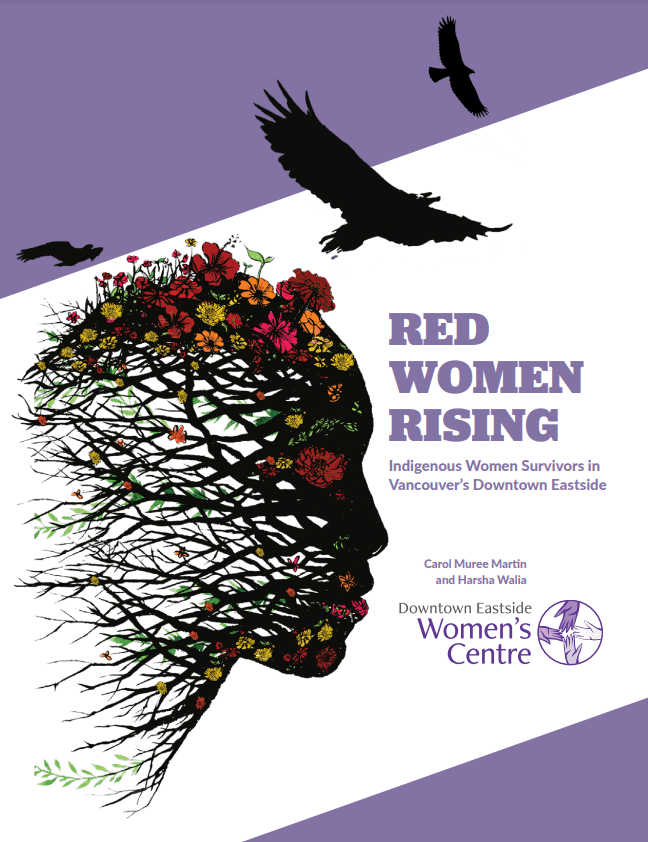207 search results
Guaranteed public services
Recommendation 31: Guarantee a free and culturally appropriate child care system for all Indigenous families, including families awaiting kinship care placements, that accommodates children of all needs and abilities and is independent from child welfare services.-
Category and theme:
Groups affected:
Recommendation 32:
Universal public healthcare coverage to include supplements, prescriptions, counselling, dental, optical, mobility devices, adaptive equipment, and alternative treatments like acupuncture.
-
Category and theme:
Groups affected:
Guaranteed public services
Recommendation 33: Provide a free transit pass for children ages 0-18 years old, all youth transitioning out of government care till age 25 years old, and for all adults on pensions, income assistance, and disability assistance.-
Category and theme:
Guaranteed public services
Recommendation 34: Establish free public bus transportation between each town and city located along the entire length of Highway 16 and all other highways, with a number of safe homes and emergency phone booths along the length of all the highways.-
Category and theme:
Audience:
Groups affected:
Guaranteed public services
Recommendation 35: Provide free tuition for all postsecondary education for all Indigenous women and girls, and eliminate all existing student loans for Indigenous women and girls.-
Category and theme:
Groups affected:
Recommendations to end Indigenous women’s displacement from land
Recommendation 36: All levels of government and police forces must end the criminalization of Indigenous peoples who are asserting their jurisdiction and rights to lands and resources.-
Category and theme:
Audience:
Groups affected:
Recommendations to end Indigenous women’s displacement from land
Recommendation 37: All Canadian and Aboriginal governments must ensure that Indigenous women are engaged fully and have equitable access to decision-making on issues of governance, land, culture, language, housing, child care, income security, employment, education, health, and other areas impacting Indigenous women.-
Category and theme:
Audience:
Groups affected:
Recommendations to end Indigenous women’s displacement from land
Recommendation 38: Remove discrimination from the Indian Act by making women and men equal in the ability to pass on status, repair situations where discrimination against women has disadvantaged those claiming status through the mother’s line, and remove the two-parent rule for transmitting status and the 6(2) cutoff that withholds status from the children of many women who are unable or unwilling to provide the father’s name.-
Category and theme:
Audience:
Groups affected:
Recommendations to end Indigenous women’s displacement from land
Recommendation 39: Compensation for the disenfranchisement and lack of protections for women and their descendants as a result of the discriminatory Indian Act and matrimonial real property laws.-
Category and theme:
Audience:
Groups affected:
Recommendations to end Indigenous women’s displacement from land
On reserve
Recommendation 40: The federal government must guarantee:- Access to clean drinking water; food security based on a traditional diet; critical infrastructure including roads and sanitation systems; and essential health, education, child care, housing, transport, recreational, cultural, and emergency services on every reserve.
- Safe, affordable, and livable housing for every woman on her reserve that is independent of her matrimonial status.
- Affordable child care and licensed day care options on every reserve.
- Complete complement of maternal and infant/child health services on reserve to enable women to remain closer to home to give birth.
- Free public transportation between each town and city located along the entire length of Highway 16 and all other highways, with a number of safe homes and emergency phone booths along the length of all the highways.
- Increase funding on all reserves for programs and services that strengthen traditional and cultural knowledge grounded in Indigenous laws, values, and practices.
- Range of anti-violence services including preventive programs, crisis intervention, victim services, advocacy support, restorative justice circles, shelters, transitional housing, and second-stage housing on every reserve.
- Cultural sensitivity training for all first responders such as police, healthcare professionals, and social workers who assist survivors of violence on reserve.
-
Category and theme:
Audience:
